INTRODUCTION
To nurture an immaculate lawn, a trustworthy and well-kept Toro lawnmower Starting accounts for half of the achievement. By the way, many homeowners and gardeners await the sound of Toro’s lawnmower engine because it means the gardening day has arrived again.
Nevertheless, expertise about your Toro machine is just as important as having it in your shed. In this comprehensive guide, we will guide you every step along the way, from critical pre-start checks to troubleshooting common issues and ensuring your Toro Lawn Mower Starting is running in top condition.
Knowing Your Toro Lawn Mower
Understanding what type of machine you are using is vital before starting to mow with it. These qualities can only be sustained through proper care and operation.
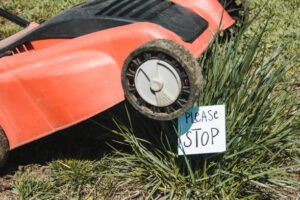
]
Toro lawn mower components overview
Engine: It is the powerhouse that generates energy for the work done by the blades and driving mechanism.
PlugSpark: A component used to start an engine by igniting fuel in a combustion chamber.
Fuel Tank: An area where gasoline that powers up the engine is stored.
Air Filter: A device that prevents dirt from entering engine cylinders, hence leading to the wearing out of internal components.
Oil Reservoir: This is where the engine oil is needed for lubrication purposes of moving parts and cooling systems resides.
Blades: They are attached at one end of the mower, and they cut grass according to the desired height.
Mower Deck: The protective casing under both blades and beneath the engine seat.
Locating these parts on a mower, as well as how to maintain them, paves the way for better care of Toro mowers.
Pre-Start Checks for Your Toro Lawn Mower
Just like pilots do before taking off, mowing machines require serious examination before getting into action. Here’s what needs your attention:
Surveying Surroundings Carefully
Take away any rocks, hoses, or anything else that could get damaged by rotating blades.
Check the fuel level
Make sure there is enough gasoline for the mowing session you want to undertake.
Examining the oil level
It is important that your engine runs without knocking, so check its oil level.
Inspecting mower blades
Check if any of them are dull, warped, or damaged in any way, as it can affect performance and safety.
Checking tire pressure
Proper inflation aids in stability and traction control.
Verify controls and safety features
All buttons, levers, and cutoffs must be inspected for their proper functioning.
Inspecting belts and drive systems
When belts get worn out, they might slip, causing reduced power. This affects cutting efficiency.
Testing Engine Shut-Off
In case of an emergency, the engine should easily shut off immediately after the ignition cut-off switch is operated.
Examining the air filter
A clogged air filter may lead to a decrease in fuel efficiency as well as damage the engine itself.
Such pre-start inspections prevent accidents while giving you a sense of how well different functions are working on your mower.
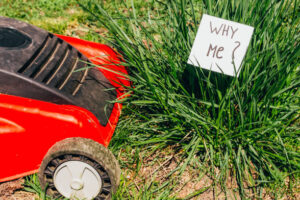
Starting Your Toro Lawn Mower
With everything checked and any adjustments made, starting your Toro lawn mower is a methodical process that guarantees a smooth operation.
The Starting Procedure
Prime the engine.
Press the primer bulb 3–4 times to move fuel into the carburetor for easy starting if your Toro mower has this device.
Set Choke (if applicable)
Starting the engine from cold means making sure the choke is engaged to limit air intake and hence enriching the fuel mixture until it warms up, then switching off when the engine reaches operating temperature.
Start by pulling the cord or pushing the button.
To start the engine, prime a fuel primer bulb and set the choke if applicable, then use the handheld-engine pull starter handle or turn the key in the ignition and push the button if electricity starts.
Safety Notes.
Before starting, ensure that you have parked your lawn mower on level ground with no obstacles around it.
Stand behind the mower.
After several tries of starting without success, please wait for a while before you make any other attempt again.
Maintenance requirements
To further facilitate future start-ups just like this one, make certain you are regularly assisting in keeping up with your fuel, oil, air filter, and belt systems during this process of starting.
General Diagnostics
Engine Failing to Start: Check for fuel and spark and see that the hold-down has not been tripped to the off position.
Engine Stalling: This is mainly an issue with fuel or air. Please make sure that the cap is open and clean out dirty filters for air filters as well as gas cap vents.
Uneven Cutting: Ensure proper blade height adjustment while checking balance points and maintaining sharpness.
Excess Vibration: Worn blades or bad mounts could be suspected as good examples to see a technician first-hand.
Power Loss: The wrong mechanical control tuning could have caused this setback or even something else like a clogged air cleaner component.
Poor Performance: If your Toro lawnmower doesn’t seem to be performing at its best, it might mean having low-quality gasoline being used in combination with possible blockage within an intake system (air-filter problem), some debris congestion inside the tank outlet valve seat (poor flow), plus other related malfunctions of the carburetor itself too.
Smoky Engine: This usually shows up as internal trouble, and all that’s needed is to bring the machine in for service.
Electrical Diagnostics: Check your battery and connections, as well as your safety circuitry.
Fuel System Troubles: To avoid such situations as not being able to start, when the lawnmower doesn’t start, it typically points to fueling issues like stale gas or a dirty carburetor.
Belt and Drive Problems: The belt should be inspected regularly for wear and proper positioning, while the drive could slip if there is a need to change it.
Blade Problems: Look for damage; replace if worn too thin or bent out of shape.
Steering and Maneuverability: Apply lubricating oil to the steering system and ensure that all wheels are tightened securely.
Safety Features: Regularly check whether operator-presence control works properly.
Professional Help: When in doubt about any of your servicing or repair work, call in an expert Toro mower technician.
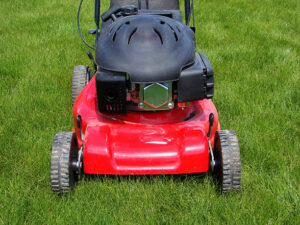
Lawn mower in the grass
How to Change Oil In Toro Lawn Mower
Tips on How to Maintain Your Toro Mower for Longevity
A properly maintained lawn mower can last many years, while a neglected one can lead to frustrations and hazards. Here are some maintenance tips:
Regular Cleaning
After every mowing cycle, clean out grass clippings from under the deck so as not to cause rusting, besides maintaining cutting blade efficacy.
Blade Maintenance
Sharpen or change the blades at least once each year or oftener if necessary; blunt edges may destroy turf and cost more in gasoline consumption.
Oil Changes
For walk-behind models, drain after the initial 5 hours of usage, then refill again every 50 hours, seasonally (for front-wheel-drive models), or yearly (for all-wheel-drive ones).
Air filter replacement
Either replace the air filter every 25 hours of operation or after a season, for instance; keeping it clean helps the engine continue running smoothly.
Spark Plug Care
Inspect and clean the spark plug yearly or after every 100 hours of usage, or buy a new one if necessary.
Fuel system maintenance
Use only clean, recent, unleaded gasoline. Old gasoline can lead to starting difficulties and damage the engine.
Storage Practices
The mower should be stored in a neat and dry place. Always cover the machine, ideally with a lawn mower cover.
Winterization
If you have a Toro snowblower or any other seasonal equipment, you may want to find this information in the manual. If storing for the off-season, however, it is essential to stabilize the fuel and remove the battery (where applicable).
Belt and drive maintenance
Analyze belts for wear and strain. Look for replacements as well as adjustments that are necessary. Lubricate all drivers that are needed.
Lubrication
For less stress on the engine, keep all moving parts of this engine lubricated. Consult the manual for particular points of lubrication.
Blade Balance
In case your blades seem unbalanced, have them balanced by professionals so that they can deliver good work as per your expectations.
Professional Servicing
For uncertain cases, one should approach an expert in Toro mowers. A qualified repairer will know exactly what is wrong with your Toro lawnmower and how best to solve it within no time.
Wheel Maintenance
Examine wheels for use; adjust when needed; plus, you are going to require highly lubricated bearings at all times.
Handle and Controls
Clean up the handles’ movable components, then smear oil on these areas afterward, fastening them tightly.
Battery care (if applicable)
When using an electric start device on your Toro model, make sure that the accumulator has charge and the connections are clear and firm enough.
Mower deck care
Frequently inspect the corrosion and rust signs on this blade deck since a clean, painted deck will live longer than those that get ignored.
Inspection Schedule
Make recordings of your various inspections and maintenance actions taken so far; this way, you will be familiar with how long each part of your mower is expected to last.
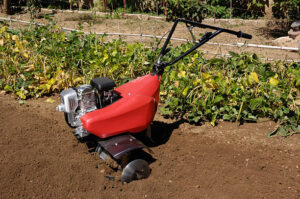
Conclusion
A Toro lawn mower’s start is more than just for convenience; it opens the gate to a beautifully kept garden. With this guide, you can always have your Toro mower prepared for use at any time. Keep in mind that maintaining this machine is not just about keeping it running but performing at its best over many years.
FAQs
For a closer look at starting and maintaining your Toro lawnmower, here are some of the most frequently asked questions (FAQs) that will give you the specifics.
Q1: Safety Precautions Before Starting?
It is important to put on proper attire before using your Toro lawnmower. Also, remember to ensure that it is working well and that there are no objects near its area.
Q2: How to Check Fuel and Oil Levels?
On top of an engine, locate the fuel tank as well as an oil dipstick, usually found at the side. This dipstick normally has a red or yellow handle, while the fuel tank cap might be colored red. Fluid levels should be checked when the mower is placed on a flat surface.
Q3: What should I inspect in the mower blades?
Dullness, curvature, and accumulation of materials should be looked for by blade users while ensuring they are clean, sharp, and do not shake loose easily.
Q4: Step-by-Step Starting Procedure?
Engine priming first, including choke settings, especially during cold mornings, then pulling away with a cord or electric switch.
Q5: How to Adjust Cutting Height?
Most walk-behind blades by Toro have one-lever height-of-cut systems. Push it forward if cutting height requires being raised, or pull back towards yourself so as to lower the level of the cutting line accordingly.
Q6: Maneuvering Techniques During Operation?
You know the adage: practice makes perfect. Walk at a steady pace and make wide turns. Use the mower’s drive system to aid in cutting thicker or larger areas of grass.
Q7: What are the best practices for storage?
Find an area in your house where it is cool, dry, and away from direct sunlight and other environmental elements. Clean it well before storing it for the offseason.
By mastering these important steps, you will not only have a better-looking lawn but also a dependable tool that will serve you for years to come. Happy mowing!
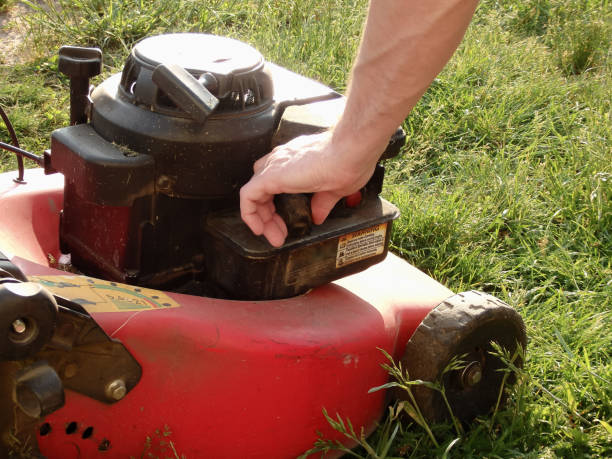








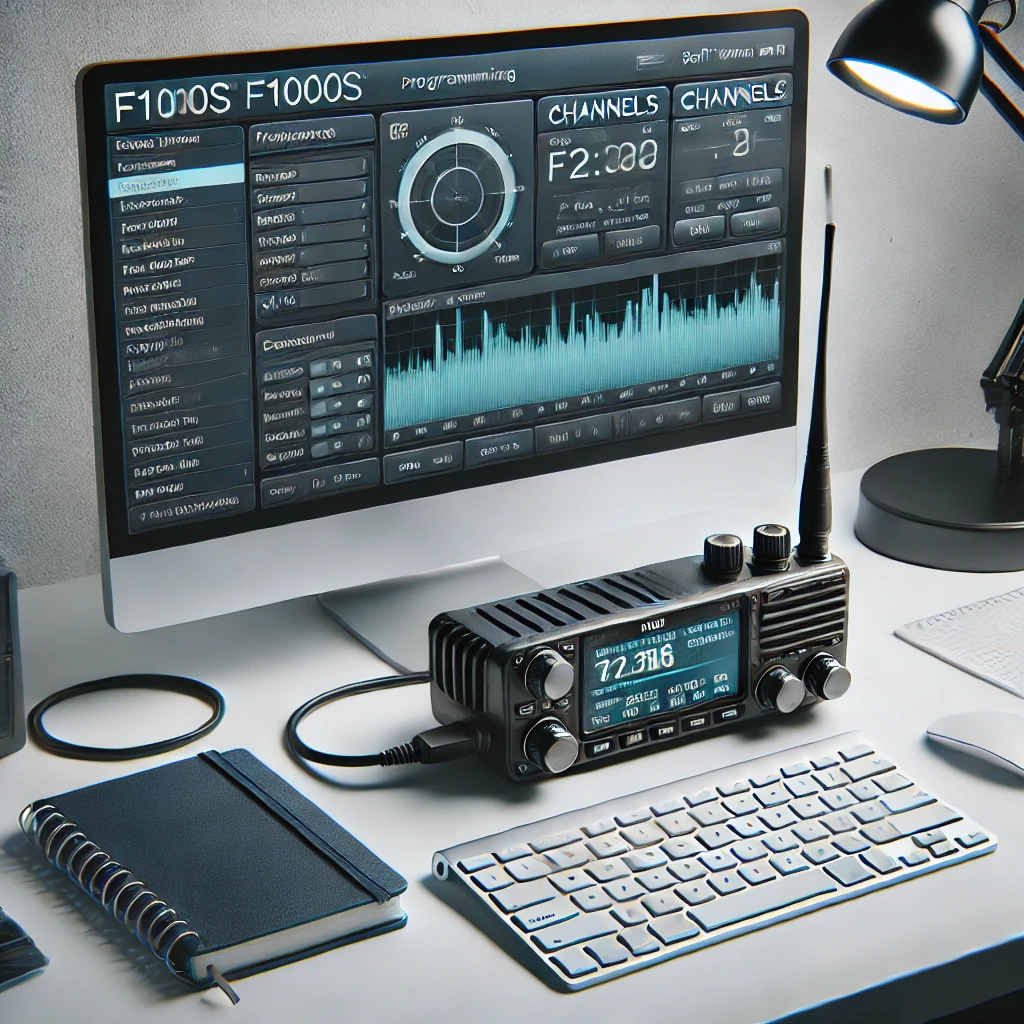

Leave a Reply